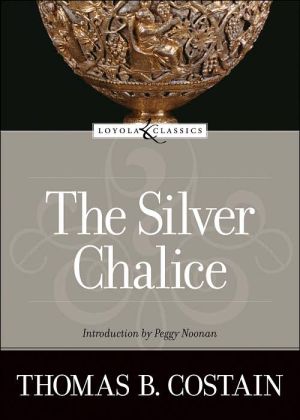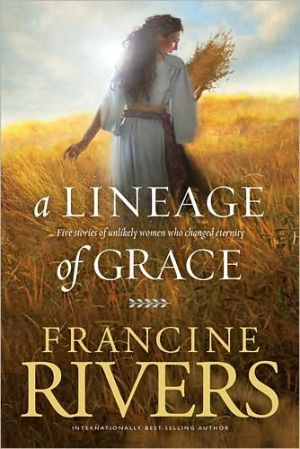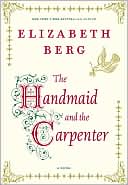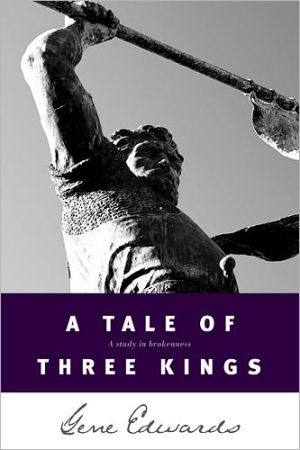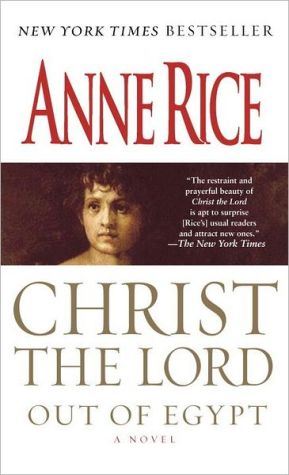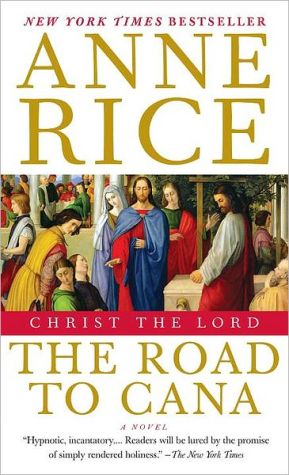Silver Chalice
"An outstanding historical novel.”—New York Times\ “This novel makes real . . . the whole world of the New Testament.”—Chicago Tribune\ “His theme is presented with an assurance and sweetness that is refreshing in a great novel.”—Christian Science Monitor\ The colorful, passionate world of early Christianity comes to vivid life in this story of Basil of Antioch. Basil, a sensitive artisan, is purchased from slavery and commissioned to create a decorative casing for the Chalice that Jesus used...
Search in google:
Part Two Of Two PartsBased on legends of the years following Christ's crucifixion, this novel describes the life of Basil, the artisan who fashioned the silver chalice that held the sacred cup from which Christ drank at the Last Supper."Costain paints a tremendous canvas filled with color and vitality. . .he breathes life into history. But THE SILVER CHALICE does more than this. It makes the New Testament, perhaps for the first time, seem real." (Chicago Sunday Tribune)
Introduction Peggy Noonan\ Fifty years apart, two novels, each concerned with the history of early Christianity, led the best-sellers list for not just weeks or months—but years.\ What a difference a half century makes. The more recent top best seller is, of course, The Da Vinci Code, published in 2003. It offers exotic conspiracy theories, colorful if unfounded speculation on church history, and an attempt to discredit the Gospels while claiming to reveal the real lowdown on Christianity’s origins.\ But in 1952 and 1953, the reading public was offered a very different take on the early Christians. A richly detailed novel fleshed out that early period of Christian history and sought to bring it to life: The Silver Chalice by Thomas B. Costain.\ The Silver Chalice, the story of early Christianity as told through the eyes and experience of Basil, a former slave, was the best-selling fiction book in the United States in 1952 and the second most popular novel in 1953. What bested The Silver Chalice in that second year? The Robe by Lloyd C. Douglas, the story of the impact of Jesus’ garment on the Roman soldier who won it at the crucifixion, another thick read about early Christianity.\ The times have indeed changed, which says much about our public faith, our interests, and even our cynicism. Certainly it says a great deal about the judgment of our nation’s modern publishing establishment. Today, if they were handed a lengthy manuscript that told a riveting and respectful story of early Christians, most houses would get the icks. At best, they’d relegate it to their small Christian-publishing arms. At worst, and more likely, they would never read it and would simply respond, “It’s not for us.”\ Lucky for us they never got their hands on the work of Thomas B. Costain.\ Costain came to novel-writing late in life, after a long career in journalism and story-editing for film. Well into his fame as a novelist, he told interviewers that he always saw himself as “a reporter . . . in the sense that a reporter tries to be accurate and interesting.” And was he ever both accurate and interesting. His historical fiction was marked by such meticulous research, such reliable detail, that one suspects he may have written his series of highly popular novels to justify his time spent researching them. Costain might have spent his life puttering happily among stacks of dusty books if it hadn’t been for a powerful imagination in service of an ardent heart that wished to reveal the past. For all his academic reliability, he was hugely popular with the general public. (This popularity did not transfer to the filmed version of The Silver Chalice. The movie features a badly miscast Paul Newman in his screen debut. Newman was subsequently so abashed by his performance as Basil that years later, when the film was scheduled to be run every night for a week on a Los Angeles television station, he took out an ad in the Los Angeles Times that read “Paul Newman Apologizes Every Night This Week.” The broadcasts, of course, got stellar ratings, which is perhaps not what Newman—who had declared he would never again make a film wearing a “cocktail dress”—had hoped for.)\ Though Paul Newman played Basil in the movie version of The Silver Chalice, it’s not necessary to picture Newman in this role—unless you really want to—in the reading of The Silver Chalice, for as he always does, Thomas Costain offers rich descriptions not only of people but of places and things. He succeeds in bringing us into the world of first-century Christianity, from Jerusalem to Rome and points in between.\ The skillful novelist knows that quite often the best way to present an unfamiliar environment is through the eyes of an outsider. Costain’s outsider is Basil, sold into slavery as a young man. He is a skillful artisan, particularly with precious metals, who is called by rather mysterious figures to Jerusalem for a surprising purpose: to create a “chalice” which will hold the cup that Jesus used at the Last Supper. Basil is not a believer and does not immediately understand his commission. The apostle Luke brings Basil to Jerusalem for this purpose, and to the home of Joseph of Arimathea, who would fund the project. Part of the tale involves protecting the cup from the hardy enemies of Christianity.\ The chalice was not to be randomly decorated. Basil realized that it should portray the scene of the Last Supper, with the faces of Jesus and his twelve apostles carefully crafted into silver metalwork. But how to see those faces?\ Through this challenge Costain brings us into the world of early Christianity: Basil must create his images of Jesus and his twelve apostles ideally from life, or at least from the recollections of others. His quest moves the story on two levels, both physical and spiritual. In his search for the subjects and those who can tell him about them, Basil travels through the Mediterranean world, ending his journey in Rome. On a spiritual level, Basil’s work takes him more deeply into the Christian world, though with one obstacle: he cannot “see” Jesus in his mind’s eye in the same way he has been able to “see” the apostles. The inability puzzles and frustrates him, for every once in a while he seems to catch a fleeting glimpse.\ Basil’s inability to see Jesus—and remember, in the Gospels, seeing and blindness are frequent metaphors for faith and the lack of it—is tied to a choice he has made, an attitude that seems to be unrelated to his quest to craft the silver Chalice. As we watch Basil grow in the realization of how the two are connected, however, we too are challenged to reflect on what elements in our lives prevent us from seeing.\ Basil’s choice, his attitude, involves a quest for revenge against some who had injured him in the past. He wants to win back his birthright; he’d been cheated and hurt by an unscrupulous relative. A central tension in the book is between his human desire for revenge and his human desire to transcend hurt, to keep the desire for retribution from deforming his life. At the end there is a twist; he gets what he needs if not what he wants, as does the woman he eventually marries. He gives up the desire to equal the scales and inflict punishment. And after this, for the first time, he can “see.”\ Basil’s story is but a thread in this tale. Costain brings us into a world in which Christianity, a small group that is still essentially a sect of Judaism, is in constant conflict with the powers around it, from the Sanhedrin to the forces of the Roman Empire. Costain’s eye for detail and observation brings this world to vivid life. There are a few anachronisms expressive of the values of the 1950s that might make the modern reader cringe as well as theological assessments of Jesus’ teachings that are more reflective of Norman Vincent Peale than of what the Gospels actually say. But these flaws are common in Biblical epics of this period, a time when Catholics were discouraged from reading Lloyd Douglas’s The Robe because of overly “naturalistic” descriptions of Jesus’ miracles.\ One of the more intriguing conflicts in The Silver Chalice is with the magician Simon Magus, who is assisted by the slavegirl Helena, Basil’s old friend. Simon sets himself up as a competitor to Christianity and finds an audience drawn by his claims. Is this conflict historical?\ Yes, no, and maybe. Simon Magus is mentioned in the Acts of the Apostles (Acts 8:9–24) as a magician, active in Samaria. He converts to Christianity and is baptized, but then, having observed the apostles’ powers of healing, offers to pay them for the power of the Spirit. He is, of course, rejected, leaving behind a tradition from which the word simony (the act of paying for religious observance or practice) is derived.\ According to several nonbiblical works of early Christianity, Simon’s story does not end there. Costain uses many of these sources to flesh out the character of Simon Magus. Writing in the second century, St. Justin Martyr spoke of a Helena—believed to be a reincarnation of Helen of Troy—whom Simon redeems from slavery, as he does in The Silver Chalice, and who serves as Simon’s assistant. The Clementine writings—a group of stories with Christian characters dating from the late fourth and fifth centuries—posit a rivalry between Peter, Paul, and Simon. So does the apocryphal Acts of Peter, the source—with some emendations skeptical of the spiritual power these legends attribute to Simon—of Costain’s account of Simon’s death.\ Using all sorts of resources—the New Testament, legends of the period, and the historical research available to him at the time—Costain constructed a rich world of faith and conflict in The Silver Chalice. In reading it, we find an entertaining window into the past, and, as in all good books, tensions and challenges that prompt us to look more closely at the present. How, indeed, do I “see” Christ? What value do I place on my faith? What would I sacrifice for it? Who are the Simon Maguses of today? What tricks do they tempt me with? Who are the Neros? What pleasures do they offer to seduce me away from Christ? What is the form of their rage and scorn when I refuse?\ More basically, Costain asks us what a marriage is and means; what loyalty is; why some men prefer to take energy from anger and resentment, from a sense of being beset, and others take their energy from love and from something higher. All this is in The Silver Chalice. Perhaps the best way to read it is to make believe it is a wonderful television miniseries that takes its time in telling you its tale. It’s a tale that lingers, that doesn’t rush, that allows you not only to observe but to think as the rich plot unfolds. This book is like the era it came from: important, informative, and yet, to our surprise, relaxing.\ Peggy Noonan is a contributing editor of the Wall Street Journal and author of John Paul the Great: Remembering a Spiritual Father.\ Prologue\ 1\ The richest man in Antioch, by common report, was Ignatius, the dealer in olive oil. He had groves that extended as far as the eye could see in every direction and he lived in a marble palace on the Colonnade. He had been born in the same Pisidian village as Theron, who supported his family by selling ink and pens made of the split ends of reed. Theron found it hard to support his family in a one-room lodging a quite considerable distance away from the Colonnade.\ One day in the heat of summer, when no one ventured out to engage in trade, least of all to buy pens, the great man came on foot to the hole in the wall where Theron sat with his unwanted wares. The latter could not be convinced at first that he was being paid this great honor and was slow in returning the salutation, “Peace be with you.”\ The oil merchant, gasping for breath and slightly purple of cheek, stepped inside to escape the sun, which was beating down on the street with all the fury of the fires of atonement. Making room for himself beside his one-time friend, he went directly to the object of his visit.\ “Theron, you have three sons. I have none.”\ Theron nodded. He realized that he was singularly blessed in the possession of three sons who had survived the hazards of childhood.\ “Is my memory to be lost through lack of children?” asked Ignatius, his voice rising to an unhappy pitch. “Is my spirit to wander after death with no one to come back to, as a moth flies to the flame?”\ The awe Theron had felt at the start was giving place to the ease of old acquaintance. After all, had not he and this corpulent merchant been raised in houses of equal size? Had they not stolen fruit together and fished in the same stream?\ “It is perhaps your thought to adopt a son,” said the seller of pens.\ “My old friend,” said Ignatius, “if you are willing, I shall buy one of your sons and adopt him as my own. He shall have as much love as though he came from my own loins. When the time comes for me to die, he shall inherit everything I possess.”\ Theron’s heart gave an exultant tug, although he did not allow any of the excitement that had taken possession of him to show on the surface. What a wonderful chance for his first-born! To become a man of substance and wealth, to eat his meals off plate of gold and silver, to drink wine cooled by snow from the mountains of the north! Or would it be the second son on whom the favor of the great merchant had descended?\ “Is it Theodore you want?” he asked. “My first-born is a boy of fine parts. He will make a strong man.”\ Ignatius shook his head. “Your Theodore will grow big and have a bulging stomach on him before he is thirty. No, it is not Theodore.”\ “It is Denis, then. My second son is a tall and handsome fellow. And also he is obedient and industrious.”\ The wealthy merchant shook his head a second time. Theron’s heart sank and he said to himself, “It is my good little Ambrose he wants!” Ambrose was turning ten and lived in a thoughtful world of his own, never so happy as when modeling figures out of clay or carving bits of wood. The seller of pens had always known that in his heart he had a preference for Ambrose. The thought of losing him was like a dagger thrust.\ There was nothing unusual about the proposal Ignatius was making. Men without sons sought to remedy the deficiency in this way. The law, as laid down in the Twelve Tables, made no distinction in the matter of inheritance between sons of the flesh and sons by adoption. It was unusual, however, for a man of wealth to think of an alliance with one as poor as a seller of pens. Ignatius could have found a willing candidate in any of the best families of Antioch. Theron, nevertheless, sought feverishly in his mind for some excuse to refuse the offer, saying to himself, “How sad life would be if I parted with my good little Ambrose!”\ After a moment he shook his head. “My third son would not suit you. He is a dreamer, that Ambrose. He has no head on him for figuring. Oh, he is a fine boy and I am overly partial to him; but I can see his faults as well as his good points. He has only one desire in life, and that is to make his little statues out of clay and chalk and wood.” Theron gave his head an emphatic shake as though to conclude the matter. “No, my Ambrose would not suit you.”\ The merchant was a thickset man, as broad across the shoulders as a carrier of water. His head was square, his features rugged. A man who fights his way to the top in trade, and stays there, sees more of warfare than a soldier; for life to him is one long battle, a continual round of buffeting and coming to grips, of tugging and sweating and scheming and hating, with none of the pleasant interludes a soldier enjoys around the campfire in the company of other soldiers, with a wineskin handy and the talk easy and vainglorious. Ignatius carried no scars on his body, but if it had been possible to hold up his soul for inspection like a garment, it would have been revealed as a thing of black bruises and scars, ridged and welted and as callused as a penitent’s knee.\ He leaned forward and placed a hand on the forearm of the seller of pens. If the latter had not been so concerned with the threat to his own happiness, he might have detected a note of supplication in the attitude of the great man.\ “That, friend of my youth, is why I want him.” Ignatius drew his brows into a troubled frown, because the need had now been reached of explaining himself and he doubted his ability to do so adequately. “The Greek nation was great when it had artists to make figures of marble and build beautiful temples of stone. It had men who wrote noble thoughts and who told the history of our race in—in glowing words. Is it not so?”\ Theron nodded. “It is so.” This was the thought that consoled him when troubles gathered around his head, when no one wanted to buy pens and the mother of his three sons railed at him as a good-for-nothing.\ “But now,” went on Ignatius, “we are traders, we are dealers in cattle and corn and ivory and olive oil. Koine has become the language of the world’s trade. I suppose that when people think of Greece today, they think first of men like me.” His eyes, usually so withdrawn and shrewd, had taken fire. “That is wrong, my Theron, and it must be changed. Greece must produce thinkers and tellers of stories and great artists again. And it is in my power, and that of men like me, to bring this about.”\ Theron was listening and watching with amazement. Could this be Ignatius talking, the man most feared in the markets and countinghouses and along the waterfront where the warehouses were so thick they cut off all view of the shipping at the wharves?\ “When I die,” went on the merchant, with a hint of pride in his manner, “there will be a great fortune to pass on. There will be no need for those who follow me to go on accumulating money and possessions. I want in my place then a man who will see things as I see them now and who will know how to use my wealth to restore some of the real glory of Greece.”\ Theron felt himself in the position of a defending captain who sees the high walls around him being battered down.\ “But,” he demurred, in an effort to find some ground for a last stand, “you know nothing about my third son. Why are you sure he is the one you want?”\ I never take a step until I know exactly what I want.” Ignatius spoke confidently. “I saw your son once only, but I know much about him. I have seen to it that inquiries were made.\ “I walked one day through the Ward of the Trades, and it was then I saw him,” he went on. “There were a dozen boys together, hopping about and scuffling and fighting—and one who sat against a wall and whittled with a knife at a piece of wood. I stopped and watched him. He was different from the others. I could see that he had a fine and wide brow. The others tried to get him into their games, but he paid no attention. Then one of them went over and snatched away the piece of wood. The boy was on his feet in a trice and fighting to get it back. He fought well. I said to myself, ‘He stands apart and asks only to be left alone, but he’s willing to fight for what is important to him.’ And then I said to myself, ‘This is the boy I want as my son.’ I felt very happy because I had been searching for a long time. I asked one of the other boys who he was and the boy said, ‘His father is Theron, who can tilt a bottle with the best and who sells lampblack and calls it ink.’ And so, Theron, my old friend, I have come to you today to talk of terms.”\ The seller of pens heaved a deep sigh. “You have opened your heart to me, Ignatius. Can I do less?” He spread out his hands in a gesture of reluctant surrender. “My fine little Ambrose is the light of my life. I love him so much that my house will be desolate without him. But what kind of a father is one who lets his own happiness stand in the way of his son’s? It shall be as you desire.” Then he turned with the fierce willingness to barter that the hot sun seems to foster. “There must be five witnesses.”\ "Yes.” The oil merchant realized the distress in the mind of the other man and spoke in a kindly tone. “It will be made legal and tight. Three times you will offer to sell me your son in the presence of the five witnesses and each time one of them will strike the brass scales with the ingot of lead. It shall all be done as the laws prescribe so that your son—no, it must now be said my son—will live with me and Persis, my wife, in full happiness and in the end be possessed of all my wealth.”\ Theron found it hard to speak because of the lump in his throat. “I place a high value on my son. I shall drive a hard bargain with you, Ignatius.”\ Accordingly five witnesses were summoned to hear Theron, clothed for the first time in his life in a spotless white toga (an extravagance at which his thrifty wife had protested bitterly), announce his willingness to sell his son Ambrose to Ignatius, son of Basil. Three times the scales were struck by one of the five, Hiram of Silenus. Hiram was an owner of small olive groves and made his profit by sailing in the wake of the lordly Ignatius; and he considered it the honor of a lifetime to officiate in this capacity. At the finish the new father said: “I shall name my son after my own father, Basil. It is the greatest honor I may pay him, for my father was a great man.”\ “Happy is the son,” said Theron sadly, “who can look up with pride to his father. And happy is the father who can inspire such pride.”\ As he never did anything by halves, Ignatius not only handed over the full amount he was to pay, but he announced to the seller of pens that he had arranged for him and his family to move south to the city of Sidon, where much more remunerative employment had been found for him. Theron agreed at once that this was sensible. The boy, cut off from everything to do with his former life, would more easily fit himself into the new environment. “It will be better if you hear no word from me at all,” he said to the new father. “The sooner the memory of me dims in the boy’s mind, the easier it will be for all of us. Be good to him, old friend.”\ The one flaw in the ceremony had been the absence of the boy. It had been arranged that he was to be given over at once into the custody of his new parents. He had been thoroughly scrubbed and arrayed in the white tunic provided for him, and a handsome leather belt had been buckled about his waist. For a brief moment the boy had known a feeling of pride in the figure he cut; but when Theron was ready to leave, looking every bit as doleful as he felt, there was no trace to be found of the central figure in the transaction. The father went alone, therefore, to the frightening magnificence of the white palace beyond the four tiers of columns on the Great Colonnade while the boy’s mother and his two older brothers (all furiously determined that nothing should prevent the paying over of the handsome sum that was to seal the bargain) went out to search. He was not found until late in the afternoon, crouched behind a pile of faggots in a river warehouse, his face black with soot and streaked with tears. He had not been idle while he remained in concealment. A lump of clay had been modeled into a caricature of the man into whose house he was to go, an unmistakable likeness, although the nose had been given a predatory hook and the ears had been enlarged to suggest extreme greed.\ Theron arrived home on legs that were unsteady and with a wine stain on his white toga. His tongue was thick as he muttered: “I sell honest ink. Never have I given a customer plain lampblack. And I am never drunk.”\ “The wine drips from your ears now!” declared his wife.\ Theron, at any rate, was sober enough to destroy the small bust before taking the boy to his new home.\ 2\ Basil, to give him the name by which he was to be called for the rest of his life, had never been inside one of the stone palaces clustering in the neighborhood where the statue of Apollo perched atop the Omphalos and where stood also the gold-sheeted dome of the Temple of Jupiter. His eyes were wide with curiosity when he was led in under the elaborately carved aliyyah protruding out over the main entrance. The floor under his feet in the hall was of yellow stone, and the glowing colors of the tapestries on the walls drew an exclamation of wonder and delight from him. The house, which was three stories in height, was built around a luxuriously green garden, but the latticed windows had all been closed against the heat. There were no signs of life in the garden save the splash of water in a fountain and the occasional note of a bird. “This must be Paradise,” thought the boy.\ Theron bade his son farewell with an air of assumed dignity. “You are going to live in great splendor,” he said. “But if you remember me, little son, let it not be with a sense of shame.”\ \ He left the boy then in the care of a fiercely handsome majordomo with bristling black whiskers. His name was Castor and there was a shade of condescension in his manner because he knew Basil had been born and raised in the Ward of the Trades. “Come, boy,” he said. “I am to take you at once to the master. The master is a very rich man and one of great power. You will find things strange here.”\ Humility was a quality that was soon beaten out of boys who lived on the other side of the Colonnade. Basil scowled at the majordomo. “The only things strange here,” he said, “is that a eunuch dares to speak thus to the son of the house.”\ Castor found this retort to his liking. He grinned at Basil and said, “We will get along together, you and I.”\ The cool halls of the house were filled with activity as the majordomo led the way up the wide stairs to the rooftop. Servants in fine robes were carrying up dishes of food and flagons of wine and bowls filled with pieces of ice, whispering as they passed each other; whispering about him, Basil realized at once, because there was a great deal of peering over shoulders in his direction and nodding of heads. “Children of filth!” said Castor, loosening the whip at his belt with furious relish. “Let one of them so much as smirk and they shall feel the sting of this on their behinds!”\ Basil caught his breath in surprise when they reached the housetop. Curious mechanical aids were being used to supply comfort. Water pipes ran along the parapets and tiny streams were spouting forth from perforations in the metal. Fans thenwafted the spray in all directions, so that a cool and pleasant mist filled the air with the effect of a perpetual breeze. At the far end, under a draped canopy of yellow silk, was a table of horseshoe shape, spread with silver and glass and an infinite variety of dishes made with a beautiful blue glaze. The table was dimly lighted, and at first the boy did not see the pretty lady reclining on a couch near the head.\ His eyes instead were chained to the space inside the table where four girls in gauzy wide trousers were dancing on large glass balls. They were almost unbelievably expert, jumping from ball to ball like thistledown, spurning one with their feet while leaping to another, keeping all the glittering spheres in constant motion, their eyes laughing, their bare arms weaving to the music which came from instruments somewhere in the gloom. The glass balls tinkled with the clear, sharp sound of bells when they met, and they rolled with magic rhythm over the smooth plaster floor.\ Then the boy became aware of the presence of the lady and he transferred his attention to her. She had, he saw, the fairest of hair and she was beautifully dressed in white and gold. He perceived also that she was taking no interest in the gay little dancers on the gyrating balls. This became apparent at the same time to a stout man who reclined on a couch beside her. He sat up with a resigned shake of his brown head.\ “You are not watching, my loved one,” he said. “It cost me heavily to engage them for your amusement. They come from the very far lands of the East.”\ \ “No,” answered the lady in a languid voice, “I am not watching the dancers. I have been more interested in this boy. He is, I suppose, our son.”\ Ignatius had not been aware of Basil’s arrival. He turned at once with a smile and motioned the boy to approach closer. Basil knew that this was his first great test. The lady in gold and white was studying him closely, and he realized that his chance for a happy life in this amazing household would depend on whether or not she liked him. He took a quick second glance in her direction and decided that it would be an easy matter to like her. She was slender, and this made a great impression on him, for he was accustomed to maternal outlines that bulged and sagged. She was gentle in manner and speech, and he was accustomed to shrillness and the heavy impact of callused hands.\ The instinct bred in him by conditions in the Ward told him to face them boldly and speak with small respect. A still deeper instinct whispered to him that this would be wrong, that he must be quiet and respectful and have little to say for himself. Obeying this second prompting, he remained where he was, his head lowered, his feet shuffling nervously.\ "Don’t be afraid of us,” said the lady. Her voice was kind. “Come closer so I may see you better.”\ Fighting down a desire to turn and run away, Basil moved forward on leaden feet. It became apparent at once, however, that he had passed muster, because the slender lady nodded her head and said to him, “I think you will make a nice son.” Then she turned to the swarthy Ignatius. “You have chosen well.\ The square countenance of the merchant lighted up immediately. He motioned Basil to take the couch on his other side.\ “We are in great luck tonight, you and I, my son,” he said. “I did not expect you to be approved so quickly. Your new mother is not easy to please. It took me two years to win her favor. You have done it in two minutes.”\ Basil had been accustomed to squatting on the floor and eating without ceremony and he was self-conscious when he found he was expected to stretch himself out on the couch and partake of the meal in a reclining position. The fare was so abundant and good, however, that the feeling of strangeness passed away. It was a matter of astonishment that the thick slices of cold mutton did not have to be counted or divided and that he could eat his fill of ripe dates and rich honey cakes. The wine, cooled in a deep jug in ice, was pure delight, and he swallowed it slowly. He watched his new mother and copied her manners, thereby saving himself from many mistakes.\ After the meal a young Roman summoned the head of the household to a consultation with some visitors. Basil knew he was Roman because his manner was brisk and his tongue soft and drawling in its use of Koine. The merchant rose to his feet reluctantly and said, “Verily, Quintus Annius, I am the only slave in this establishment and you are my taskmaster.”\ “I don’t believe your Quintus Annius ever eats or sleeps,” said the lady Persis in an indifferent tone. “He is such a busy young man!”\ The sky was now sprinkled with stars, and Basil found himself curious as to how the world would look at night from such a height. He looked at the lady Persis, who had partaken of supper substantially and was now showing signs of drowsiness, and asked in a respectful voice, “Is it permitted that I look over the parapet?”\ She sat up at once and dabbed her eyes with perfumed water that a slave girl brought her in a jeweled glass. “Be careful, then,” she said, straining to see him with shortsighted eyes. “We are so high from the ground that I never dare look over because of dizziness.”\ Basil, who had played games of hide-and-seek across the flat roofs of the poor section, leaping from house to house, saw no risk in surveying the world from the vantage point of his new home. The artistic soul of the boy responded at once to the magic spectacle of Antioch after the coming of darkness. All the families in this privileged section spent the evenings on their rooftops. He could see they were supping in much the same lavishness by lighted lamps that winked at him like fireflies. The profile of a lady with a beautiful Grecian nose and a nimbus of fluffy black hair swung directly into his line of vision from the next house as she moved her position, then vanished into the shadows, although he could still see her fingers toying with a bunch of grapes. On the roof beyond this a man was singing and accompanying himself on a cithara, a professional entertainer without a doubt, for his voice was sure and well trained. A slight breeze had sprung up, bringing to the boy the most delightful scents from the gardens below. He looked up at the sky and was sure that the stars were larger and brighter here than anywhere else.\ \ Then he thought of the stifling heat in which his parents and his two brothers would be existing, and all sense of well-being left him. He was particularly concerned about his father. “I am sure he is sad,” he thought, “because I am no longer there.”\ The slaves were removing the food and he became aware that one of them, a girl a year or two older than himself, was very attractive. She was watching him covertly, her eyes always turning in his direction as she moved about her tasks. Once, when Castor’s back was turned, she gave him a smile. He allowed his mouth to twitch in response. Encouraged by this, she sauntered close enough to the parapet to address him in a whisper.\ “Castor would whip me if he caught me speaking to you. But I don’t care. He has whipped me many times and I scratch him and kick him in the shins. He is a beast.”\ A few minutes later, having accomplished so much without being detected, the girl sauntered close to him again, moving with a sinuous swing of her slender hips. She whispered with a catch of breath that came close to being a giggle, “I think you are a pretty boy.”\ This time she did not escape detection. The lady Persis raised herself from her couch and said in a sharp voice: “Attend to your duties, girl! Do you want me to report you to Castor for insolence?”\ The girl disappeared in a great hurry at that, and the lady of the house called Basil to her and talked to him about the attitude he must adopt toward the slaves. He must never be familiar with them, particularly with the girls, of whom there were nearly a dozen. “Never lay a hand on any of them,” she admonished. “It always leads to trouble. As for this one, she is an impudent slut. She was traded to us in redemption of a debt, and I am certain we made a mistake in taking her. Never speak to her or she will presume on it.”\ During the next few days, which were so exciting and full of surprises that he had no time to be homesick, Basil was always aware of this forward member of the household staff. Her name was Helena, and her sloe black eyes gave her an illusion of beauty. She never spoke to him, but he knew that she continued as aware of his presence as he was of hers and that only the fear of Castor’s long black whip kept her from attempting more familiarities.\ Then he missed her. For several weeks she was not in evidence; and finally he was told by Cassandra, a coal-black slave who did nothing but tend to the clothes of the lady Persis, that the girl had been sent to the “housing,” which meant, he knew, that she was working in the warehouses. Sometimes slaves were sent to the housing and came back later in a subdued mood, in which case it was said they had been tamed. When Helena returned a full month later, Basil got up his courage to ask Castor about it. Had she—had she been tamed?\ “Tamed?” Castor snarled with his whole face, his oily black whiskers curling upward under his nose. “Not that one. Nothing can tame her.”\ Basil’s room was on the floor beneath the rooftop, a lofty and cool apartment with a sunken bath in one corner and with a couch that was beautiful to see but deceptively hard beneath its fancy coverings. The next night the heat was so great that sleep was impossible and, as he tossed about, he imagined that he had heard a voice call his name from the balcony of the floor below. The call was repeated, “Basil!” in a tone little above a whisper. He was sure it was the girl Helena and that she had climbed up from the slave quarters by means of the garden latticework.\ Remembering the warning he had received from his mother, he did not respond at once. Then it occurred to him that she might be in need of help. He sat up on the side of his bed and wondered what to do. “Are you going to be a coward?” he asked himself. Finally he decided he must risk the consequences and, getting to his feet, tiptoed to the door opening on the inner corridor. As he did so, he fancied he detected a sound of rustling and creaking, as though she were making her way back by the same means she had employed in reaching the balcony. He whispered her name but received no response. The silence of the night remained unbroken after that, but the boy could not sleep. He was dissatisfied with himself. “I must be lacking in courage,” he thought a dozen times.\ The next day he heard that she had run away. When he asked Castor about it, the majordomo scowled and said: “I wish I knew where she has gone, the little slut! How I would like to get my hands on her. I would raise welts on that white back of which she is so proud!” He took out the whip that was always with him like a truncheon of office and cracked it viciously. “This much I know, she’s not serving one master now. She will serve a different one every night of her life. That is what she has gone to, the lazy limb of wickedness!”\
